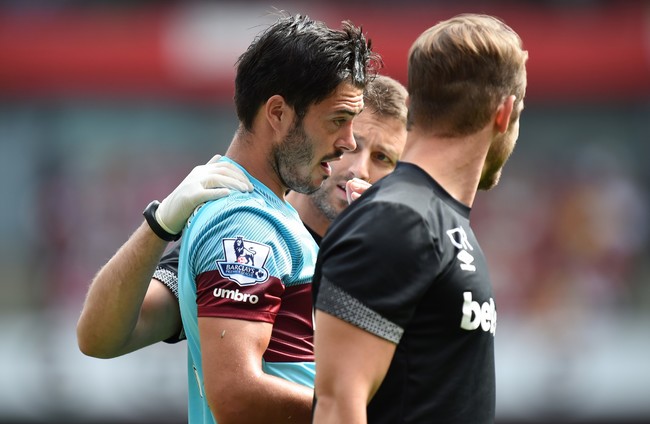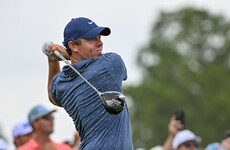PROFESSIONAL FOOTBALLERS ARE at heightened risk of developing a brain disease that can cause dementia and is usually found in boxers and American football players, a study published today suggests.
The study, published in the journal Acta Neuropathologica, looked at 14 retired footballers with dementia who had started playing football and heading the ball in childhood or their early teens.
Post-mortem examinations carried out on six of the players found that four of them showed signs of chronic traumatic encephalopathy (CTE), far in excess of the average rate of 12 percent found in the general population.
“The findings of our study show a potential link between playing football and CTE,” the study’s lead author, Helen Ling from University College London’s Institute of Neurology, told AFP.
“There’s now a pressing need to identify the risk involved.
Large-scale study is needed and cooperation from professional bodies such as the FA (Football Association) and Fifa will be required.”
It is the first time CTE has been confirmed in a study involving a group of ex-football players.
The unnamed players were 13 former professionals and one “committed amateur” who had played football regularly for an average of 26 years.
They had all been referred to a psychiatry service in Swansea, south Wales between 1980 and 2010.
The earliest signs of dementia started when they were in their mid-60s — compared to an average of the mid-70s for the general population — and 12 of the 14 died with advanced dementia.
Permission from next of kin for post-mortem examinations to be carried out was granted for only six of the players.
The players whose brain autopsies showed signs of CTE also had Alzheimer’s disease, though Ling said the relationship between the two diseases remained unclear.
“They’re two potential brain disorders that can cause dementia,” she said after the study was presented to the media in London.
“It’s most likely that a combination of these pathologies have contributed to dementia in these retired footballers.
“The most pressing research question is therefore to find out if dementia is more common in footballers than in the normal population.”
- Heavy, leather footballs -
The post-mortems were carried out by researchers from University College London and Britain’s National Hospital for Neurology and Neurosurgery.
The study did not show whether the damage inflicted on the footballers’ brains had been caused by heading the ball, aerial collisions with other players or something else.
Unlike boxers and American football players, who regularly receive major blows to the head, footballers are unlikely to experience significant neurological symptoms or losses of consciousness.
Instead, they are subjected to what the researchers termed “repetitive, sub-concussive head impacts”.
CTE can only be diagnosed posthumously and a very small number of former footballers are known to have had the disease.
They include former Brazil captain Hilderaldo Bellini and ex-West Bromwich Albion striker Jeff Astle, who died in 2002 aged 59.
Astle was originally diagnosed with early-onset Alzheimer’s, but a re-examination of his brain revealed he had died from CTE that a doctor said was brought on by repeatedly heading the ball.
An American semi-professional footballer called Patrick Grange died of CTE in 2012, which researchers say is a sign the condition cannot only be linked to the repeated heading of old, heavy, leather footballs.
Several high-profile former players have contracted Alzheimer’s, including three of England’s 1966 World Cup-winning team: Martin Peters, Nobby Stiles and Ray Wilson.
England’s FA says it supports research into degenerative brain diseases in former players and has called on world governing body FIFA to investigate.
Jiri Dvorak, FIFA’s former chief medical officer, has said there is “very little evidence” linking footballers’ brain trauma and dementia.
In the United States, children under 11 have been banned from heading the ball in response to a lawsuit brought by parents and players concerned about concussion.
The British researchers say the risk of recreational footballers developing brain problems through playing the sport is “extremely low”.











Irish golfers not in a good place in 2018….. Some too fat…